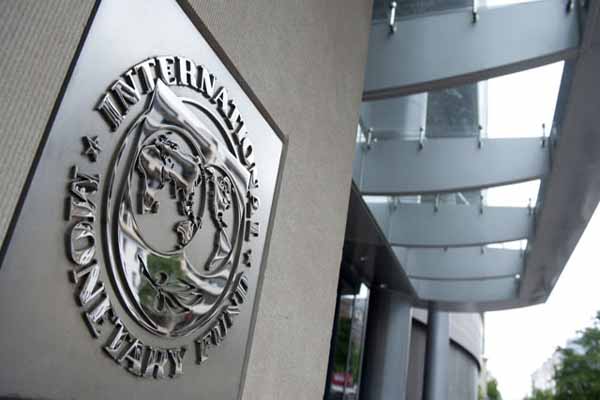An International Monetary Fund (IMF) report published recently called on Turkey to tighten its fiscal and monetary policies further while saying that raising domestic savings still remains a challenge for the economy. According to the report prepared by an IMF team that visited Turkey from Sept. 18-30 for its annual economic evaluation as part of regular consultations, Turkey has achieved a reduction in imbalances while maintaining positive growth, which is accelerating and encouraging domestic demand. However, it added that “with the imbalances still high and the global financial environment less forgiving, reducing these vulnerabilities should be the overreaching focus of short and medium-term policies.” The report highlighted that monetary policy needs to be tightened further to meet the inflation target and “provide an adequate nominal anchor. Fiscal policy should also be tightened in order to increase the structural primary surplus in 2014.” Also the team noted that the main challenges for Turkey remain raising domestic savings and pressing ahead with structural reforms in the medium term. “Both would serve to increase the long-term growth potential of the economy, while maintaining a sustainable external position.” The IMF said Turkey's current account deficit should widen to 7 percent of its gross domestic product this year and stay that way in 2014, in part due to more gold imports. And inflation should remain above the target of 5 percent this year and next, exacerbated by the depreciation in Turkey's lira.
Turkey has been among the most high-profile victims of the shift in global capital prompted by signals the Federal Reserve would rein in its ultra-easy monetary policy. The lira gained sharply when the US central bank surprised markets in September by holding fire on an actual cut in bond-buying.
Turkey's central bank governor, Erdem Başçı, said last week the lira's fall had worsened the outlook for inflation. He said the bank would implement additional monetary tightening in its complex money market operations if there were risks of price growth getting out of control. He said the lira, which hit its weakest level ever against the dollar on September 5, was unjustifiably weak, and said inflation would be higher than the bank's previous forecast - an argument for more action.
The Fed's decision to hold off on tapering gave Başçı some breathing space but economists are skeptical of whether the lira's 15 percent fall since February is at an end given the pressure of global flows and Turkey's huge current account deficit. The IMF said tighter fiscal and monetary policy should reduce external financing requirements and inflation, which would decrease the likelihood of further capital outflows. It also said Turkey should avoid selling its foreign exchange reserves as a substitute for monetary policy, and use the reserves only to address excessive volatility.
Turkey's central bank has sold more than $9 billion of its roughly $50 billion in readily available foreign currency reserves in the past three months, raising questions about its ability to resist another bout of currency volatility.


 Margaret Greer has been sworn in as the new Mayor of Enfield
Margaret Greer has been sworn in as the new Mayor of Enfield Prime Minister Keir Starmer's 2025 Easter message
Prime Minister Keir Starmer's 2025 Easter message After Nesil Caliskan a by-election will be held in Jubilee ward in Enfield
After Nesil Caliskan a by-election will be held in Jubilee ward in Enfield Publishing the analysis, Labour’s Cllr Ergin Erbil said Everybody in Enfield deserves basic rights
Publishing the analysis, Labour’s Cllr Ergin Erbil said Everybody in Enfield deserves basic rights Great respect for Ataturk and enthusiastic youth celebration in England
Great respect for Ataturk and enthusiastic youth celebration in England UK AMBASSADOR TO TURKEY VISITS FETHIYE
UK AMBASSADOR TO TURKEY VISITS FETHIYE Journalists from Europe held the Turkish Media Workshop in Skopje
Journalists from Europe held the Turkish Media Workshop in Skopje The European Union called on Turkey to uphold democratic values
The European Union called on Turkey to uphold democratic values Fenerbahce is the EuroLeague champion
Fenerbahce is the EuroLeague champion Brennan Johnson’s first-half strike seals London side’s win
Brennan Johnson’s first-half strike seals London side’s win The 'Prince of Paris' has impressed in his first EuroLeague season
The 'Prince of Paris' has impressed in his first EuroLeague season Saran Media And Euroleague Basketball Extend Media Rights Partnership for Four More Years
Saran Media And Euroleague Basketball Extend Media Rights Partnership for Four More Years UK, EU reach landmark agreement on food, fishing ahead of London summit
UK, EU reach landmark agreement on food, fishing ahead of London summit Perry Scott to become Enfield Council Chief Executive
Perry Scott to become Enfield Council Chief Executive Residents welcomed back to Edmonton Leisure Centre
Residents welcomed back to Edmonton Leisure Centre Barclays has become the biggest UK lender so far to cut mortgage rates
Barclays has become the biggest UK lender so far to cut mortgage rates



















